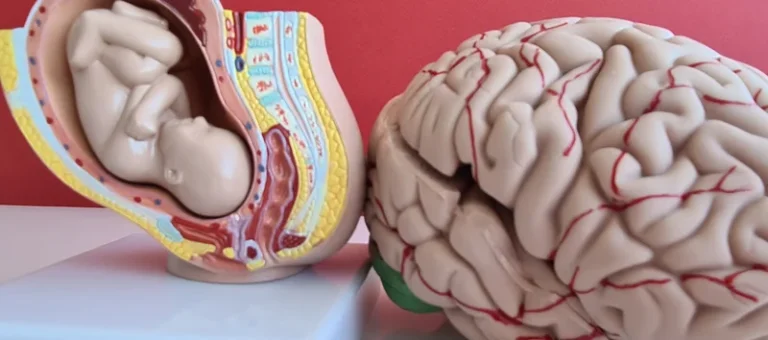Addiction vs Dependence: Understanding the Differences

Based on your responses, you may want to speak with a health care provider to ask about your symptoms and treatment options.Schedule a free consultation to speak to one of our admissions coordinators and see if IOP treatment is right for you. As the medical and scientific discussion on these terms has progressed in recent years, both are now considered as part of a larger grouping; that of substance use disorder. Detoxification treatment may need to be administered to those with substance dependence due to the dangerous nature of some withdrawal symptoms. Research suggests that no treatment method is superior, but that social support is very important and that organizations such as AA and NA have better than average success rates in reducing relapse. Physical dependence usually means the person’s body has become reliant upon the substance’s effects, causing unpleasant withdrawal symptoms when they try to stop using. If you or someone you love has a dependence on a substance or is showing signs of addiction, talk to your doctor about these symptoms.
- Addiction, on the other hand, often encompasses the elements of dependence and also includes a host of other considerations across life domains.
- Addiction encompasses both a mental and physical reliance on a given substance.
- The seminal role of the Western Diet in the pandemic of NCDs is unchallenged 31.
- Nonetheless, systematic reviews of the literature demonstrate that ultraprocessed foods have the highest addictive potential due to their added sugar content 104.
- Most clinicians mistakenly attribute the growing rise of NCDs to growing prevalence of obesity because of the quantity of the food ingested.
- The U.S. wastes $65 billion in work productivity and $150 billion in health care resources, and experiences a 50% increase in absenteeism and health insurance premiums, all to care for the co-morbidities of metabolic syndrome 150.
The Impact on Individuals and Society
Relationships strain under the weight of broken promises, financial stress, and trust issues. The individual may withdraw from healthy relationships to avoid judgment or spend more time with others who share their addiction. People struggling with addiction often experience intense emotional turbulence due to disrupted neural circuits involved in stress response and emotional regulation. This explains why logical consequences often fail to deter substance use in addiction, even when the individual clearly understands the risks. The impairment extends to working memory, attention span, and the ability to Substance abuse delay gratification. Dr. Ashish Bhatt, MD explains the differences between physical dependency and addiction.
What Does It Mean To Have a Substance Abuse Problem?
- It should be noted that education alone has not solved any substance of abuse.
- Information labelling is not easily understandable by the regular consumer buying food products in the supermarket.
It should be noted that education alone has not solved any substance of abuse. Nonetheless, education softens the playing field, so that societal policy interventions can become acceptable and take hold. Taken together with the aforementioned studies 12,136,137, Koch’s Postulates for causation of NCDs by added sugar are fulfilled.

About Medical News Today

Genetic, neurological, or psychological factors can all increase a person’s likelihood of developing a drug or alcohol dependence. In addition, stress, trauma, and hardship are also known ‘risk factors’ that make addiction more likely. Even certain personality traits like being naturally more impulsive or neurotic can increase the chances of developing a dependence on drugs or alcohol.

Ultraprocessed Food: Addictive, Toxic, and Ready for Regulation
In this edition, the definitions revolving around addiction were changed once again. The APA ditched both “substance abuse” and “substance dependence” in favor of “substance use disorder.” Substance use disorder is now the medical term for addiction. Previously, abuse was a mild form of addiction, and dependence was a moderate or severe form of addiction. That terminology was problematic because in biology — the study of organisms — dependence refers to a physical adaptation to a substance.
Introduction: Pandemics and Public Health
The difference between addiction and dependence can be difficult to understand. Unlike tolerance, which focuses on how much of the substance you need to feel its effect, physical dependence happens when your body starts to rely on the drug. If you were to suddenly stop using it, you would likely experience some harsh symptoms.
Drug Abuse vs Addiction: Understanding the Key Differences and Similarities
“We just don’t see people with these addiction symptoms when it comes to antidepressants,” Das said. “For those of us who are daily coffee drinkers, our brain adjusts to the presence of caffeine. When I stopped drinking coffee, I had a couple of days of headaches and sluggishness, which resolved,” she said. Calls to numbers marked with (I) symbols will be answered or returned by one of the treatment providers listed in our Terms and Conditions, each of which is a paid advertiser. But our genetic makeup doesn’t necessarily rule our choices and our lives. For example, social drinkers with a family history of addiction have a 1 in 5 risk of misusing alcohol, he says.
Beyond the Individual: Societal and Personal Impact
However, given enough time, people with dependence may develop an addiction. Recognizing the differences between addiction and dependence is crucial for understanding the unique challenges faced by those struggling with substance abuse and for developing effective prevention and treatment strategies. Addiction often stems from a complex interplay of genetic, environmental, and personal addiction vs dependence factors. It can be viewed as a chronic brain disorder that alters the reward system, leading to the prioritization of the addictive substance or behavior over other aspects of life. Addiction is a chronic condition, meaning it tends to persist over time and requires ongoing management.
Abandoning The Terms
He also sees people who have taken heroin without developing an addiction, yet they can’t seem to stop smoking and give up nicotine. You may assume that certain substances are more addictive than others, and that is partially true, Mr. Kump says. Symptoms like headache, muscle weakness, nausea, vomiting, and excessive sweating are common symptoms of withdrawal. Treatment for dependence varies, depending on the substance, but typically can be handled by a general physician. Each time a substance is taken, a flood of dopamine is released in this part of the brain. Addiction and dependence do have several similarities, hence why many confuse the two.
They may experience withdrawal symptoms or feel unable to stop taking the drug. The Recovery Village aims to improve the quality of life for people struggling with a substance use or mental health disorder with fact-based content about the nature of behavioral health conditions, treatment options and their related outcomes. It should not be used in place of the advice of your physician or https://ecosoberhouse.com/ other qualified healthcare provider.
BREDD: